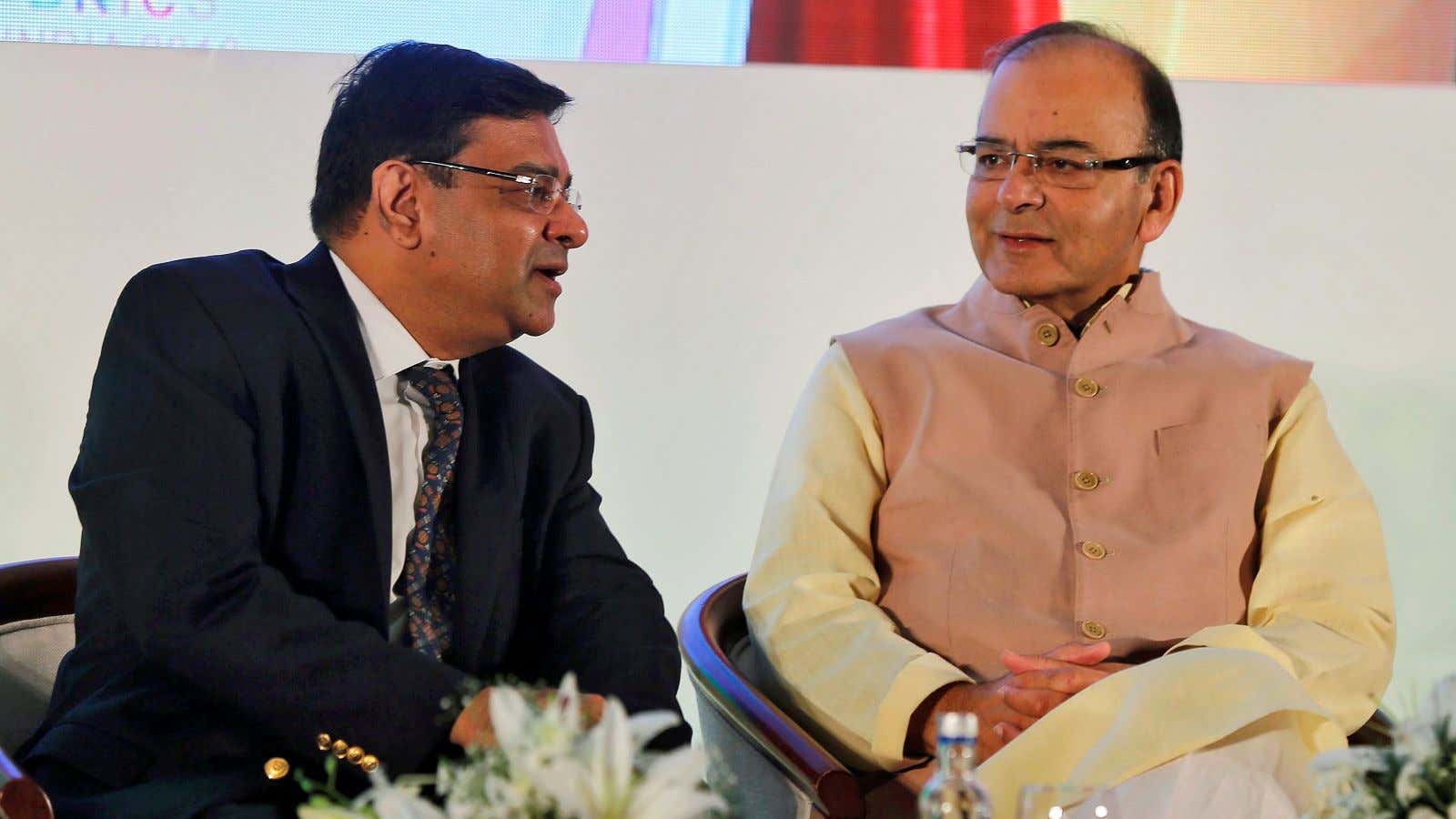What did India’s finance minister and the central bank do after the country’s biggest banking fraud unraveled on Feb. 14? They went silent.
A week later, the two key pillars of Asia’s third-largest economy have finally spoken up.
At an event in New Delhi on Feb. 20, finance minister Arun Jaitley said that supervisory agencies need to assess what new systems are required to detect irregularities. He also called for greater scrutiny of the auditor’s role in allowing frauds to go undetected for years.
On the same day, in Mumbai, the Reserve Bank of India announced its decision to set up a committee to examine the reasons for rising banking frauds and propose measures to curb them.
On Feb. 14, Punjab National Bank (PNB), the country’s second-largest state-run bank, informed the stock markets that $1.77 billion (over Rs11,000 crore) was swindled out of its coffers over seven years. Nirav Modi, a jeweller and the main accused, and his uncle Mehul Choksi, a co-accused, are reportedly on the run.
Since then, doubts have been raised over the PNB management’s role, the auditor’s performance, employee collusion, and systemic loopholes. This, even as the Narendra Modi government plans to pump in more money to rescue ailing government banks.
RBI’s plan
The RBI committee will be headed by YH Malegam, a former president of the Institute of Chartered Accountants of India. In 2010, Malegam had headed another RBI panel formed to suggest ways to regulate the microfinance industry.
The other members on the board include RBI’s Bharat Doshi and AK Misra, S Raman, a former chairman of Canara Bank, and Nandkumar Saravade, CEO of the Reserve Bank Information Technology, the central bank’s IT arm.
The banking regulator has also clarified that it had warned banks of the possibility of the manipulation of SWIFT, the messaging system used to wire money.
“RBI had…confidentially cautioned and alerted banks of such possible misuse (of SWIFT), at least on three occasions since August 2016, advising them to implement the safeguards detailed in the RBI’s communications, for pre-empting such occurrences. Banks have, however, been at varying levels in implementation of such measures,” the notification said.
Such lapses are one of the key reasons for the rising pile of bad loans, believe experts. In the last few quarters, the RBI has identified that some banks had a higher share of bad loans than what they had been declaring. The new Malegam-led committee will look at addressing the loan under-reporting issue and will recommend ways to prevent it as well. It will also scrutinise the effectiveness of the various audits conducted by the banks.
The government’s promise
Meanwhile, the government has laid the blame squarely at the door of the management and auditors. “There is an important challenge where the supervisory agencies are now to introspect as what are the additional mechanisms they have to put in place to ensure that stray cases don’t become a pattern again,” said Jaitley at an event in New Delhi.
However, mere introspection may not be enough. At a time when the sector is reeling under the shock from the PNB scam, another alleged fraud of Rs3,700 crore($574 million) has surfaced, involving Vikram Kothari, chairman and managing director of stationary maker Rotomac Global. So PNB’s case wasn’t an isolated one.
Nonetheless, Jaitley is confident that the law enforcement agencies will be able to track down fraudsters. “With regard to lack of ethics that a faction of Indian business follows, it is incumbent on us as a state, till the last legitimate capacity of the state, to chase these people to the last possible conclusion to make sure that the country is not cheated,” he said.
Yet, his government has still been unable to bring back one-time booze baron Vijay Mallya. His extradition trial in the UK has remained inconclusive so far. Mallya, something of poster boy for loan defaulters in India, owes over Rs9,000 crore to various banks.




